Those who are leaving or those who are staying based on principle: who has the majority? Are people prepared for criminal prosecution for objection to mobilization? What is their greatest fear right now?
On the third day of mobilization in Russia, Paperpaper.ru’s investigative unit surveyed our readers to find out if they try to avoid being drafted, and about their perceptions of risks facing their families. Here’s what we found out about our subscribers’ thoughts and plans.
We received 849 responses: 38.4% from men, 5.9% from women who have a military occupational specialty, and 55.7% from women who responded on their partners’ behalf.
Most of our respondents risk being drafted
For most of our readers who responded to the survey, mobilization is an immediate concern. One respondent in five belongs to the first category of army reserve, one in three is in the second or third category. 7 percent received military training as reserve officers at a university and do not know their category, while a quarter deferred obligatory conscription. The majority of respondents are under 35 years old, whereas only a few are older than fifty. The prevalence of respondents under 35 can be attributed, among other things, to the overall profile of Paperpaper.ru’s readership.
Just 1.4 percent received a draft notice during the first few days of mobilization. Another 1.9 percent already had a mobilization order. However, two thirds expect to get drafted soon or at a later time.
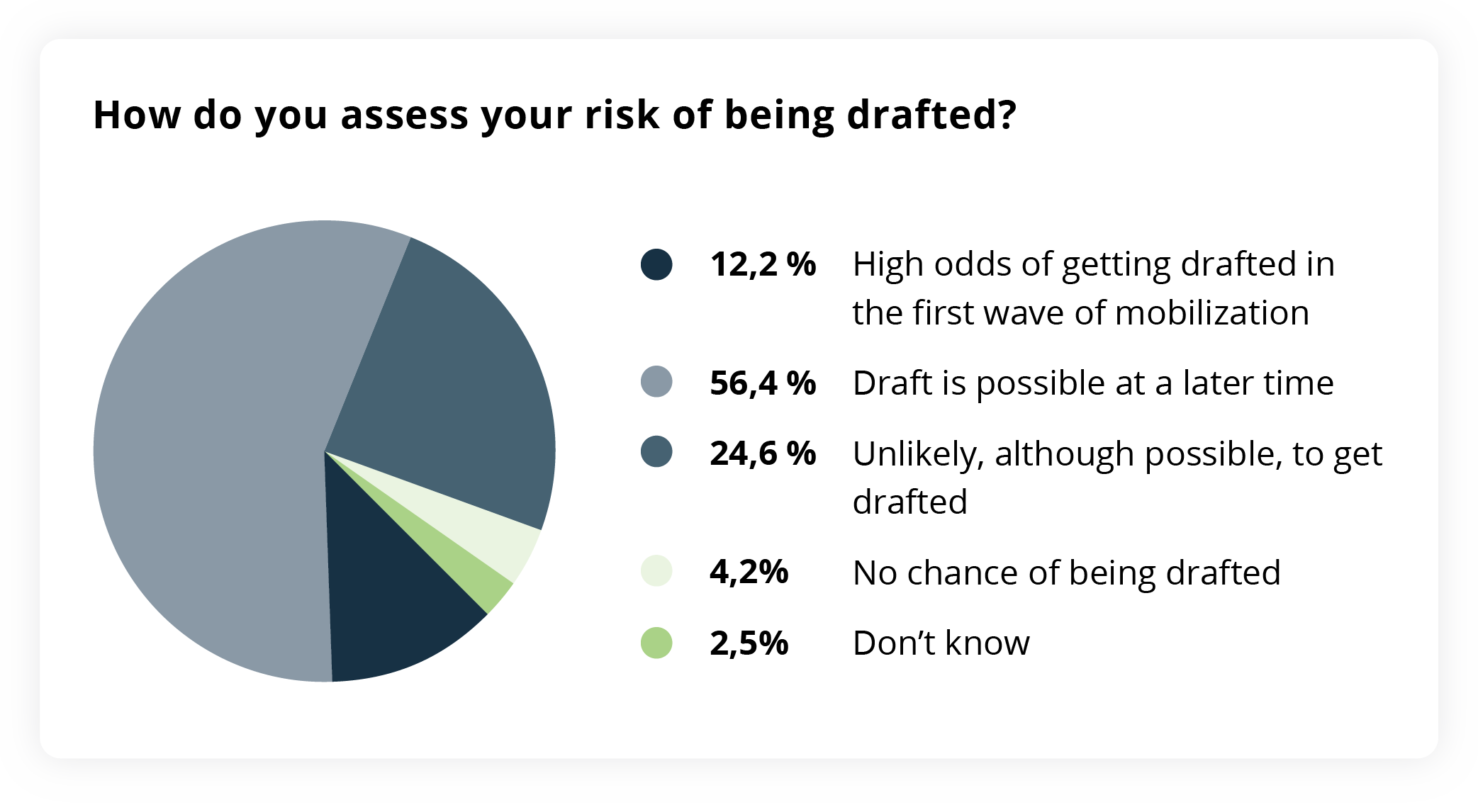
Less than 5 percent believe in the 300 thousand mobilization cap. Almost a third of respondents plan to leave
Our readers do not believe that mobilization will be over by the end of 2022. Nearly everyone is convinced that more people will get drafted than it was officially announced on the first day of mobilization. Just 4.5 percent think that only 300 thousand people will actually get drafted.
Despite the mobilization campaign, over 90 percent of participants were in Russia at the time of the survey. 15 percent of them are adamant about staying in the country. A small portion had left urgently because of mobilization, while a third of respondents planned to leave in the near future.
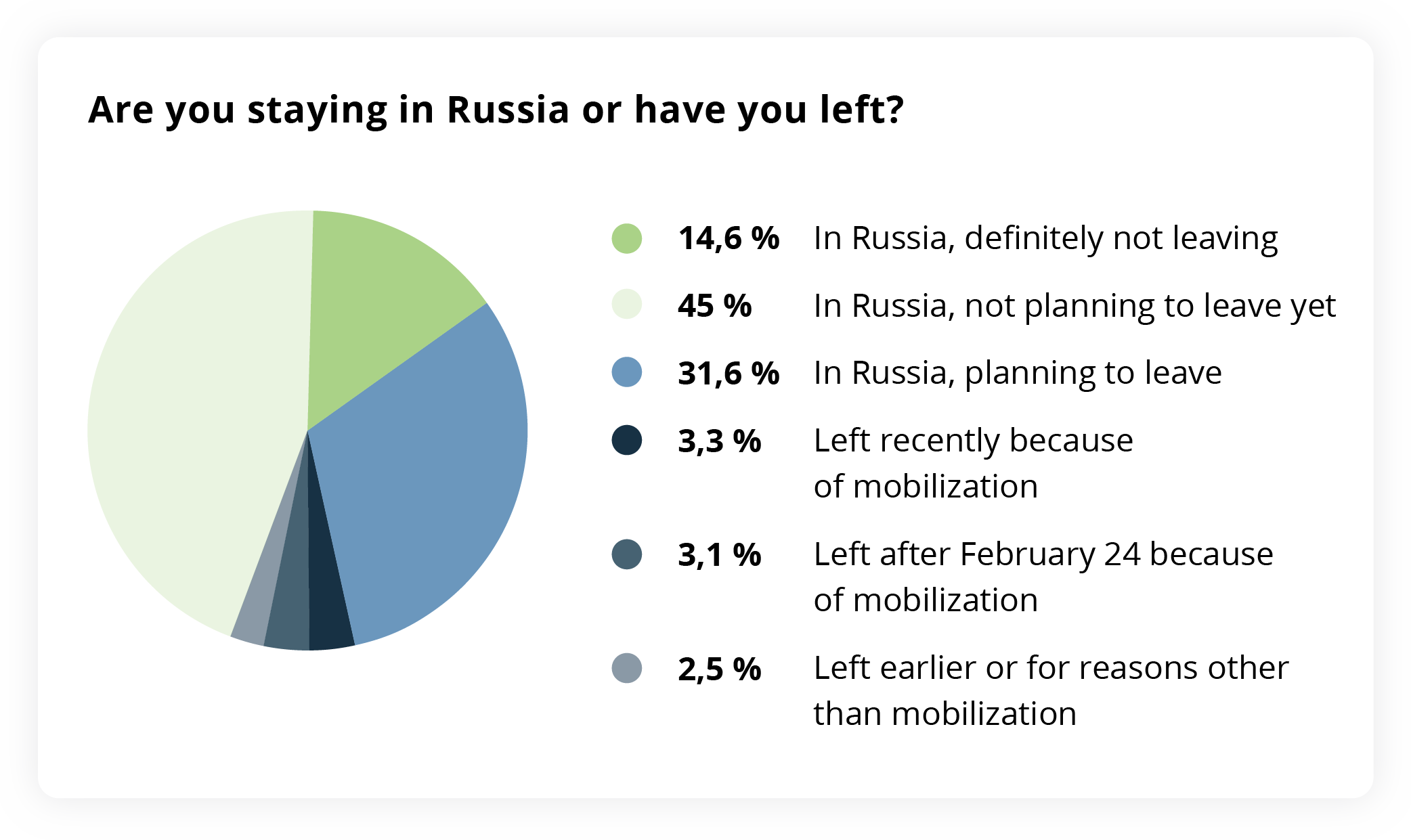
Two thirds of respondents staying in Russia are going to watch the developments and have no immediate plans. “I’ll be dealing with that If I do get drafted,” as one respondent put it. Almost a quarter of participants plan to hide.
17 percent of readers still don’t want to leave Russia. 41 percent say they are ready for criminal prosecution
Many respondents expect to avoid conscription on medical grounds or count on the exemption for students and essential workers. Some hope to get into alternative civil service.
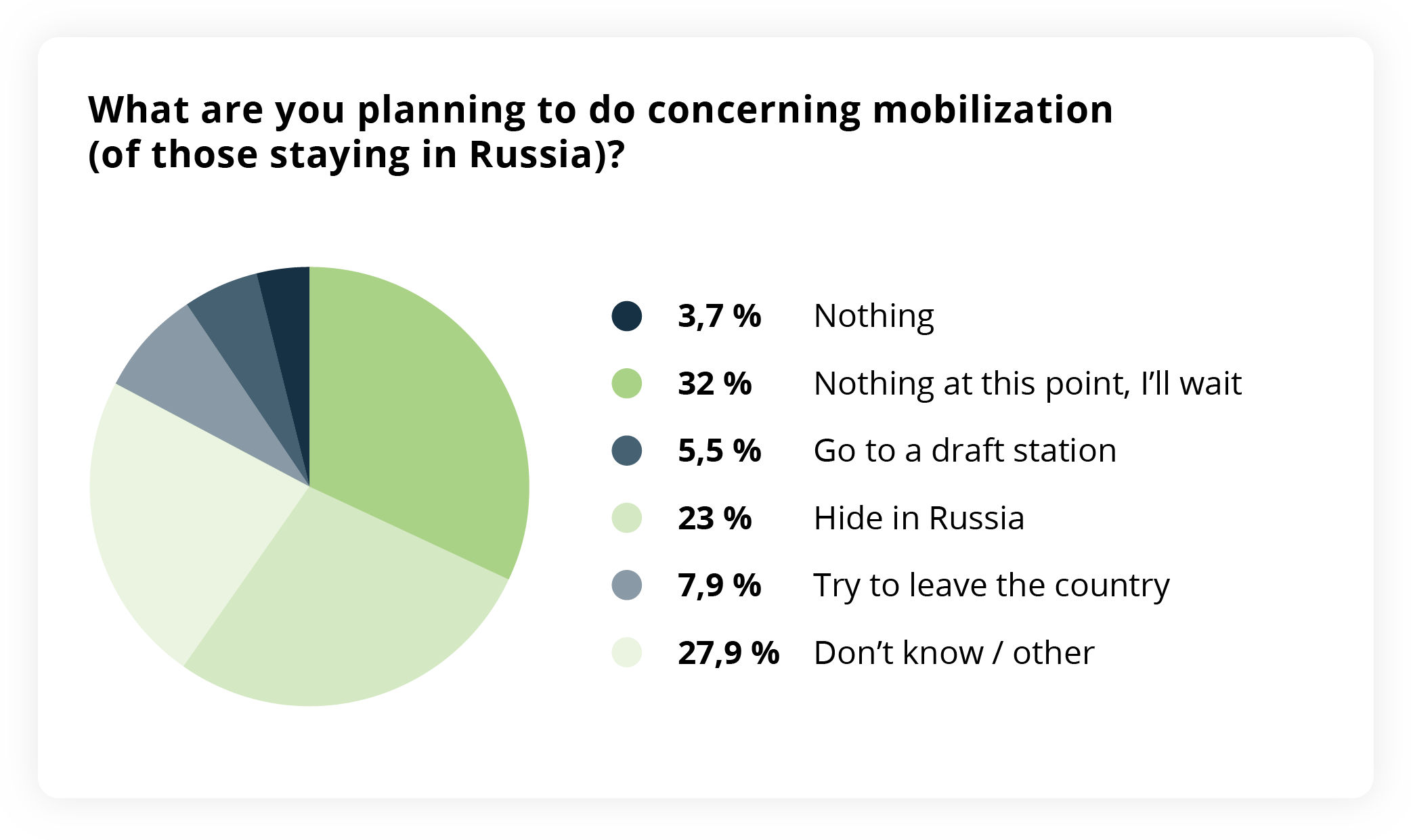
Some responders don’t want to leave even at risk of getting drafted: this answer option was chosen by 17 percent. 10 percent of those staying said they would like to leave but their partner is against it (this answer was given by men and women).
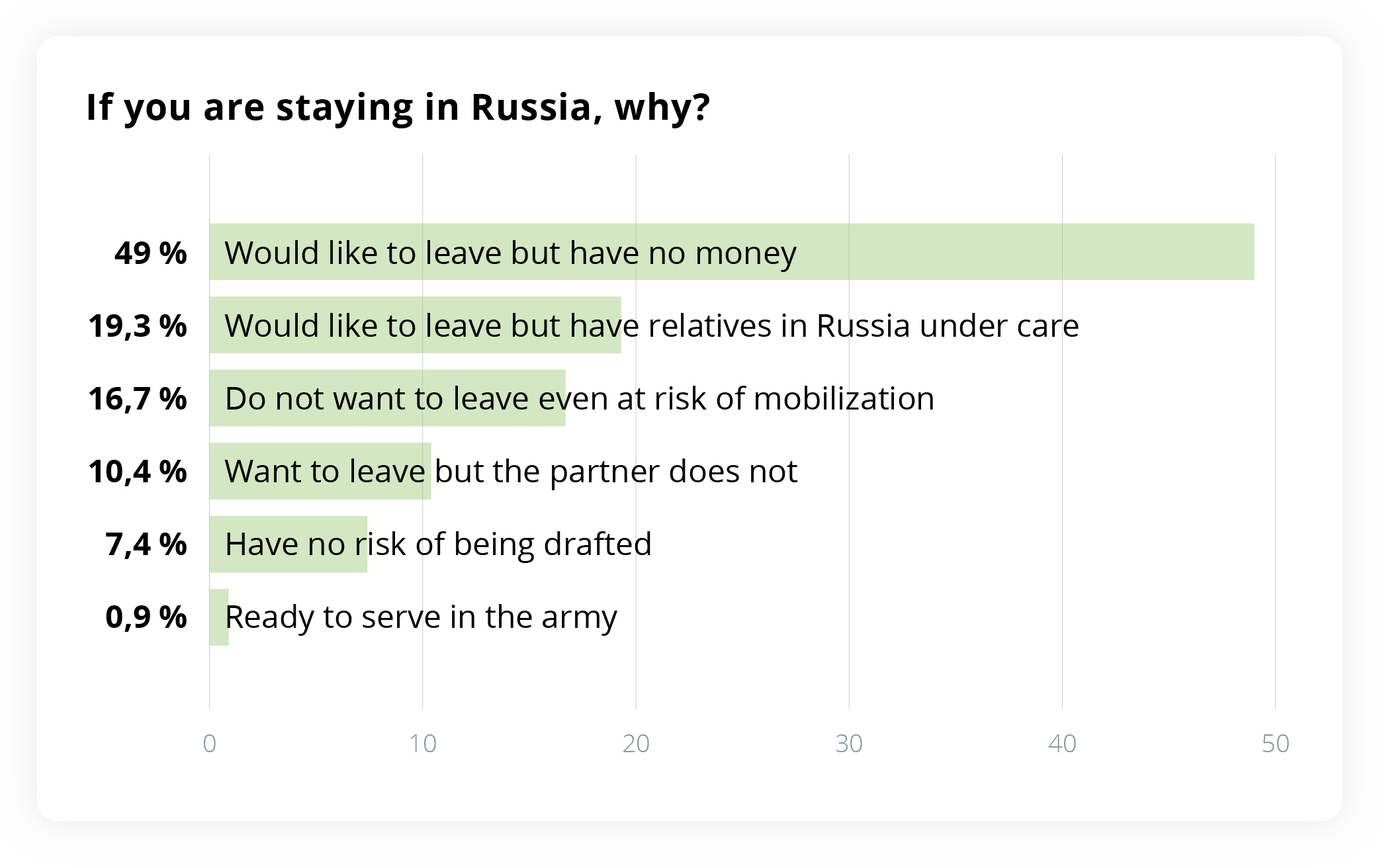
Why are Paperpaper.ru’s readers staying
- Among other reasons cited by respondents, the most frequent were studies, debt, lack of foreign language skills, mortgage, large family that is difficult to take along, lack of travel documents, need for medical treatment, lack of remote work, education of children. “We have no opportunity to move as a family, and my husband says he won’t leave me and our son behind. Even if he left on his own, we would be very much affected, since our jobs can’t be done remotely,” one respondent explained.
- Some participants liable for draft do not want to avoid it for altruistic reasons. “I am a medical worker, so I won’t have to kill,” one man said. “They’ll take conscript soldiers, kids who are 18 or 19 years old. I’m over thirty: if I hide, how am I going to live with that later?” “Who will defend our borders, if not us?”
- 41 percent are ready to face criminal prosecution for objection to mobilization.
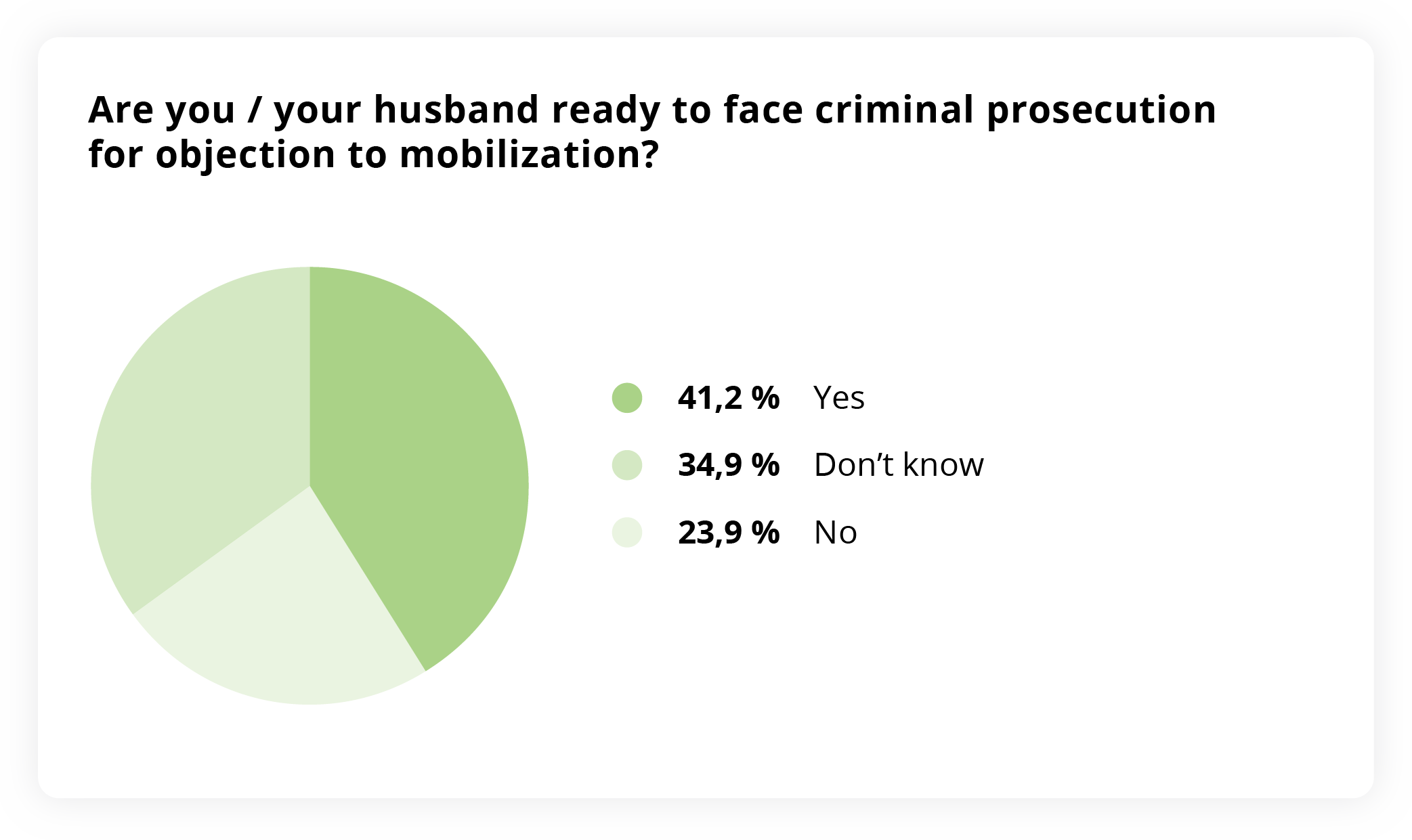
- Among our respondents, IT workers are the largest professional group, at 23 percent. One person in ten works in commerce and roughly as many in the production sector. Two respondents are military professionals; there were no career reservists or their wives among those surveyed.
Our readers fear death and compromising with conscience
Dozens of our readers said they feared death: their own or death of a loved one. Many feel threatened by the unpredictability of life in Russia and the new laws, iniquity, unemployment, and the necessity to compromise with conscience. Other reasons for anxiety include the war lingering on and Russians’ submissive acceptance of mobilization: “the way people just go there without even trying to do something.”
Paperpaper.ru — is independent media from Saint-Petersburg, Russia. We’ve been reporting on the Russian-Ukrainian war since the day it started. As a result, our website was blocked by the Russian government.
For 10 years we’ve been writing about the local community, business and initiatives. Yet, our main goal was always to improve life in the city we love.
We are Russian-language media but now we translate our the most significant articles to share it with our English speaking audience. Help independent journalism — save the freedom of speech!
